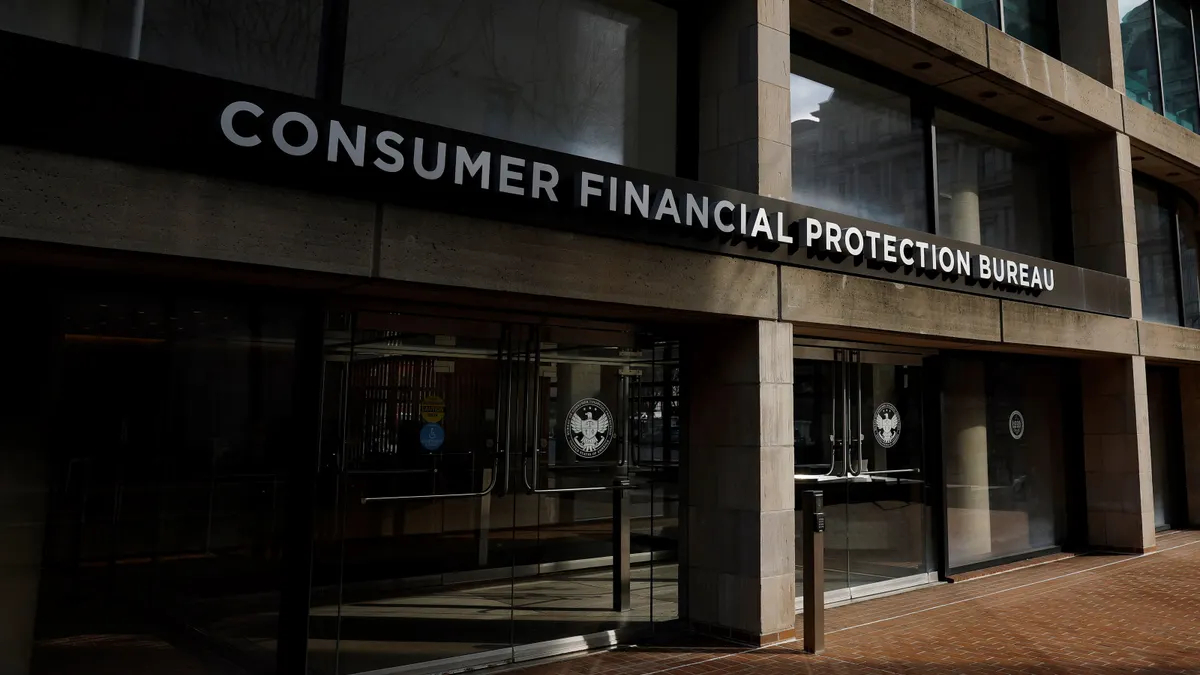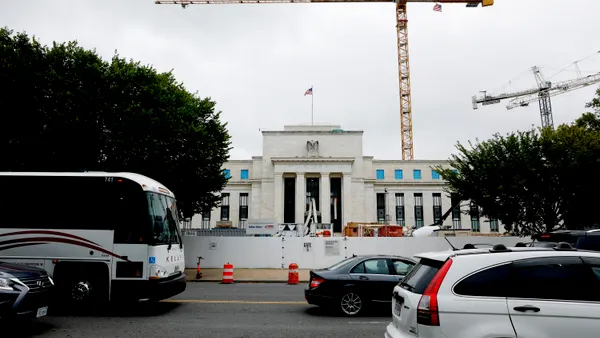Dive Brief:
- A federal judge has denied motions from five organizations that had sought to file amicus briefs in the legal battle between banks and fintechs over the Consumer Financial Protection Bureau’s open banking rule.
- The Financial Data and Technology Association of North America, along with four other groups, asked District Judge Danny Reeves for permission Monday to file its brief supporting the Financial Technology Association’s June 29 motion for summary judgment backing the rule. Three nonprofits — Consumer Reports, the Financial Health Network and SaverLife — had also requested permission to file briefs supporting the FTA’s position.
- Reeves said Tuesday that additional information from FDATA isn’t necessary and wouldn’t help him “in resolving doubtful legal issues in the case.” Reeves also denied a brief from Public Citizen, a public advocacy organization, saying that the FTA had covered its same arguments.
Dive Insight:
The rule stems from Section 1033 of the 2010 Dodd-Frank Act, and was enacted after years of deliberations.
The Bank Policy Institute, which represents most of the big U.S. banks, and the Kentucky Bankers Association brought the lawsuit against the CFPB last October, along with Kentucky-based Forcht Bank, immediately after the rule was finalized the same month.
In May, Reeves allowed the FTA, which represents fintech players such as Block, Intuit and Stripe, to intervene in the case to defend its members’ interests. The bureau, which shifted its position on the rule after the installation of new leaders by the Trump administration, filed a brief urging Reeves to void the rule.
In their joint filing last week, Consumer Reports, FHN and SaverLife said they “approach the issues in this case through a somewhat different lens than any of the parties” because all three “seek to advance financial inclusion and consumers’ financial well-being.”
FDATA represents about 30 fintechs such as the processor Fiserv and software firm Plaid, according to its website. The association’s brief, which it posted online, argues that the CFPB’s final rule from October 2024, under the prior Biden administration, hewed closely to the language Congress adopted in the 2010 law.
“We stand firm in our view that when Congress enacted Section 1033, it clearly intended for consumers to have the right to securely share their financial data with third parties of their choice — and that perspective remains central to deploying open banking in the United States,” FDATA Executive Director Steve Boms said Tuesday by email, replying to a request for comment on the judge’s decision.
Like the FTA’s argument, FDATA said that lawmakers were clear in their language in Section 1033 about letting consumers empower their own authorized representatives to gain access to financial information.
Open banking supporters say Congress sought to inject competition into the financial services industry via the law, allowing fintech startups to compete with banks and credit unions.
“The pinched view of Section 1033 pressed by the Plaintiffs and the CFPB cannot be reconciled with the statute or any sound view of statutory purpose,” FDATA said in its brief. “Why would Congress have enacted a mandate, with the CFPB empowered to issue rules, that achieved nothing beyond the sort of individual-consumer access to account information that was already universally available at the time of enactment?”
The Trump administration has dramatically reduced the CFPB’s mission and staffing under Acting Director Russ Vought, who is also the director of the Office of Management and Budget.
In its proposed brief, Public Citizen said the bureau’s effort to win summary judgment against itself “appears to be a procedural innovation unprecedented in the annals of federal law.”
“Amicus has been unable to find any other instance of such a motion, and the agency’s litigation posture raises serious concerns about its compliance with the fundamental requirements of the Administrative Procedure Act,” the nonprofit organization said in its brief, which was filed Monday in the court docket.
The agency is “attempting to repeal the rule without undertaking the steps required by the APA,” according to Public Citizen, “and to insulate its decision to do so from subsequent judicial review.” That legal effort represents “procedural gamesmanship” and should be sufficient reason for Reeves to deny the bureau’s motion for summary judgment, according to the brief.














